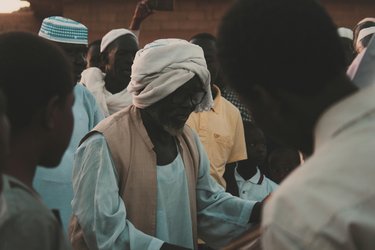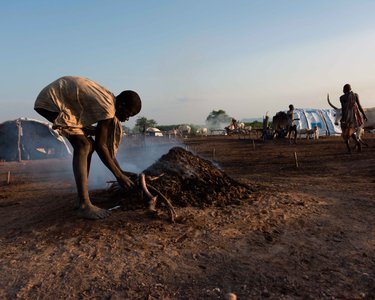The conflict in Sudan has compounded a grave and protracted humanitarian emergency in the country. As a result, half of Sudan’s population require humanitarian assistance, with millions displaced into internally displaced persons (IDP) camps and many more on the brink of famine. With international non-governmental organisations (INGOs) and United Nations agencies limited in their ability to respond, Emergency Response Rooms (ERRs) are filling the gap.
Formed in April 2023, the Sudan ERRs provide urgent humanitarian aid to millions of displaced and vulnerable individuals. Despite limited resources, ERRs deliver critical services like community kitchens, evacuation centres, and clinics.
As they scale, ERRs face challenges in improving financial and impact accountability and developing a locally owned and open-source digital infrastructure.

The ERRs need a standardised and accessible digital solution to track fund allocations, document spending, and report outcomes to the Sudan Logistics and Coordination Committee (SLCC). Without this, they struggle to meet fundraising targets and report back to donors. Additionally, ensuring long-term sustainability requires a locally owned and open-source platform to empower Sudanese developers and create scalable infrastructure.
This project aims to support the ERRs in managing these humanitarian funding workflows through the development of an open-source digital platform. The project seeks to pilot this digital solution, scaling it to ERRs nationwide, and developing a governance framework to ensure local ownership and sustainability. To achieve this, GISA Group will conduct the following activities:
- Development and Piloting: Continue the development and piloting of the open-source digital platform and scale the digital solution to 350 ERRs.
- Governance Frameworks: Establish governance framework in collaboration with ERRs and relevant stakeholders to ensure sustainable and safe deployment.
- Localisation Roadmap: Develop a sustainability roadmap to ensure local ownership and future localised development.
- Lessons Learned: Produce a lessons learned report to provide recommendations for the development of similar tools in other humanitarian crises.
This project is led by Gisa Group. Key stakeholders include Sudanese communities, Sudan Localisation Coordination Council, Mutual Aid Sudan Coalition, technical partners, humanitarian NGOs, and institutional donors.
